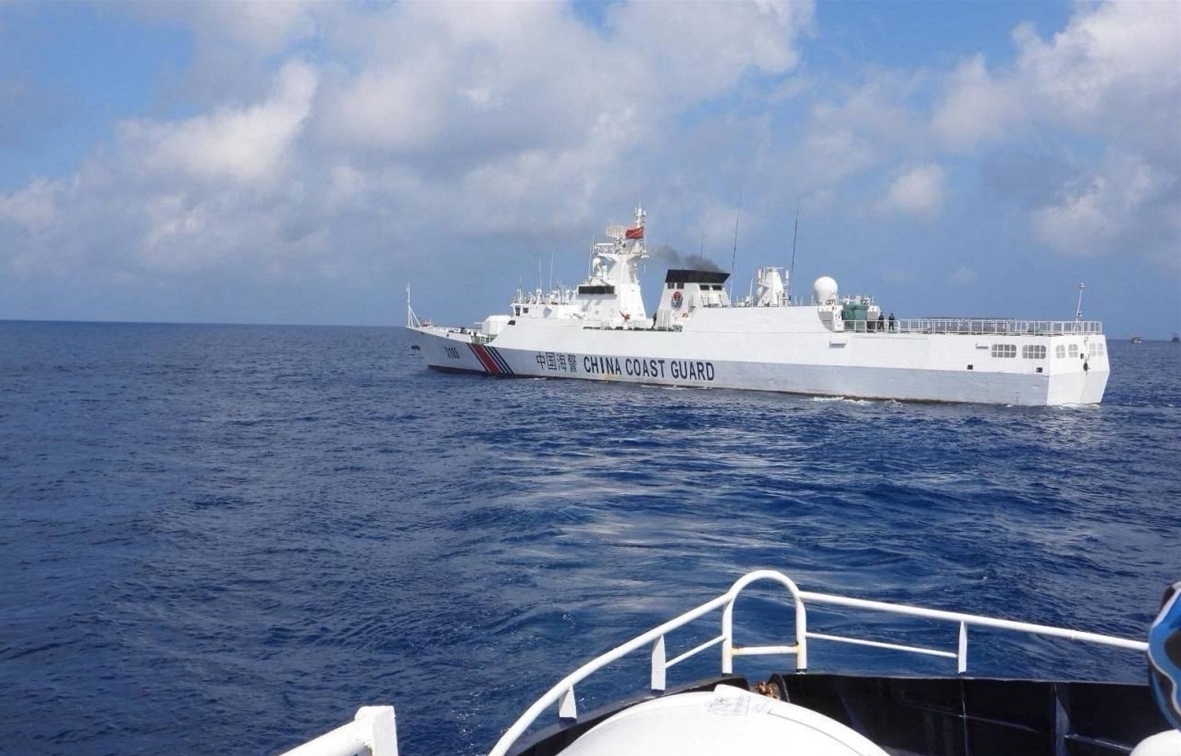Editor’s Note:
The escalation of recent tensions between China and the Philippines raises concerns among neighboring countries in the South China Sea. How will the Philippines’ provocations, instigated and supported by the US, affect the situation in the South China Sea in the rest of 2024? Why does ASEAN hope that the situation will be contained?
In the “ASEAN Perspective on the South China Sea” series, we collect wisdom and insights from former diplomats and scholars from ASEAN member countries. In an interview with Global Times (GT) reporter Su Yaxuan, Herman Tiu Laurel (Laurel), founder of the think tank Philippine-BRICS Strategic Studies, said that it is highly unlikely that the US will aid the Philippines in the event of a hot war breaking out. The US is just using the Philippines and fooling the Filipinos.
GT: Do you think that if a conflict were to break out between China and the Philippines, the US would help the Philippines?
Laurel: The willingness and ability of the US to come to the immediate aid of the Philippines once it’s engaged in a conflict is a question that has been lingering on many people’s minds. Most Filipinos doubt it.
It is highly unlikely that the US would come to the aid of the Philippines in a hot war, unless this would benefit the US in some way. However, the US has no interest in a conflict with China in the region. The US knows it cannot defeat China in a war, particularly in the region.
The country is just using the Philippines and fooling the Filipinos, telling them that they would support them. But we have seen in many cases that the US does not provide assistance and aid to its allies.
GT: What is the current attitude of the Filipino people toward China and the South China Sea issue?
Laurel: It is not difficult to discern the real attitude of the Filipino people. But one has to be very particular about getting the correct feedback from the people. Comments from the media and survey groups are highly manipulated.
Recent interviews of Filipino fishermen in the field show no intention of being drawn into the current administration’s strategy against China. They had been fishing freely in waters off the Ren’ai Jiao (also known as Ren’ai Reef) and Huangyan Dao (also known as Huangyan Island) until the increased presence of the US naval and military force here. They warmly expressed a clear desire for friendship and peace.
In several cases, the Philippines have been provocative and pursued what the US designed for the Philippines, which is called the “assertive transparency” strategy, aiming to send boats and ships to provoke the China Coast Guard (CCG), have media take footage and snapshots of these clashes and report it to the world.
From the beginning, the tension pushed fishermen to be more careful in approaching these areas. More Chinese coast guards started to patrol the area. They had not harassed our fishermen, but this had created tension and fear. So, they longed for the time when former president Rodrigo Duterte had a very good understanding and cooperative undertaking with China, and they were able to fish freely. I think that reflects the real concern today.
But in terms of the Philippine media, which is controlled by the US in many ways, the propaganda against China has been going on for the past 10 years at least, and the minds of many Filipinos are poisoned against China. So, it’s understandable that if we rely only on surveys, there is a very negative view of China.
GT: Some scholars have referred to the South China Sea issue as evolving into a “proxy war,” which could turn the Philippines into the “Ukraine of Asia.” Do you agree with this statement?
Laurel: Yes, I think that is the understanding of most Filipinos of what the US is doing with the Philippines, which is preparing it for a proxy war in Asia, making it a Ukraine 2.0. That’s why the past year and a half has been a period of increasing tension between the Philippines and China.
US Air Force Colonel Raymond Powell (retired) said that Beijing has “gray zone” tactics in the South China Sea and the US’ move to “deter that activity” is aimed at “exacting a reputational cost on China,” which means to slander China and damage China’s reputation in Asia and its relations with the Philippines.
By implementing an “assertive transparency” strategy, the US will provoke incidents, bring along international and Philippine media to video, take photos, and report to the world that China is acting as a “bully.” The purpose of this is to inflame the sentiment and the emotions of Filipinos against China. This was the plan that has gone on for a year and a half.
Fortunately, the last CCG and Philippine navy clash has finally shaken Filipino officials to realize that China will not give in to the “assertive transparency” strategy and anti-China propaganda. It will also not allow the line to be crossed in the South China Sea in terms of the claims of China to territorial sovereignty over these areas that are being challenged.
GT: You have mentioned that “the support the Philippines needs is from vital ASEAN neighbors, but in fact, the Philippines is isolated in ASEAN.” Why is the Philippines isolated and lacking support?
Laurel: The US is trying to use the Philippines to disunify and weaken the unity and solidarity of ASEAN, and discredit ASEAN. It is saying ASEAN is not helpful in the claims of the Philippines over the South China Sea. The US has no good intentions for ASEAN. But ASEAN member states are not blind to this.
George Yeo, former foreign minister of Singapore, has said “The Philippines never consulted ASEAN, so ASEAN felt no obligation to support the Philippines over Ren’ai Jiao. ASEAN shows great discomfort because they really don’t want escalation and conflict in their own backyard.”
Singapore’s former prime minister Lee Hsien Loong has asked in a forum in late 2023, “Are you sure you (Filipinos) want to get into a fight where you will be the battleground?” Malaysian Prime Minister Anwar Ibrahim said several times in public that countries should make a pitch for “aggressive” diplomatic efforts to solve conflicts, and he opposed “external interference” in the South China Sea disputes. There are a lot of polite but very clear signals from ASEAN. They don’t like what is happening to the Philippines’ strategy in the South China Sea, which is being pushed by the US.
We hope that in the next few months, the Philippines will go back to when we had an independent foreign policy, the policy of friends to all and enemy to none. We hope to restore our full cooperation with China, which has been beneficial for the Philippine national economy, and beneficial for Philippine infrastructure, including many bridges, roads, irrigation facilities and hydroelectric dams that were built with China’s assistance.













